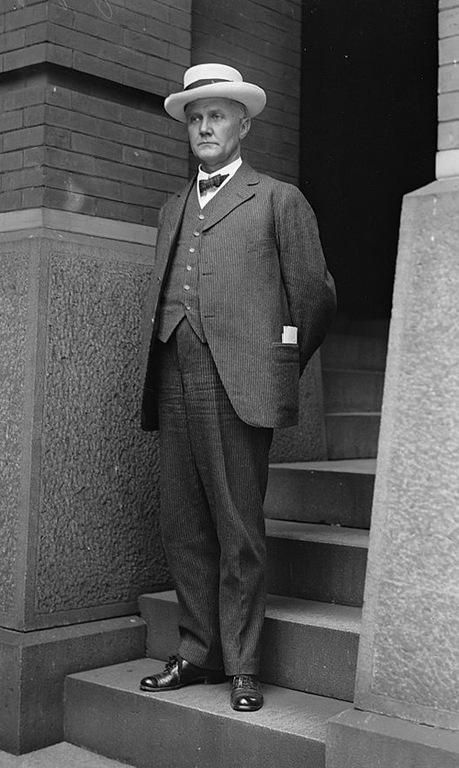A Byte Out of History
The Bureau’s Role During Early World War I Years

A badge from the Bureau of Investigation, as the FBI was called from 1909 to 1933.
When war broke out in Europe a hundred years ago—in 1914, to be exact—the U.S. declared its neutrality, and U.S. investigative agencies like the Bureau of Investigation (the precursor to the FBI) had little role to play.
As the conflict escalated, though, American munitions, food, and other goods became a point of contention. Great Britain and its allies tried to purchase all they could afford from the U.S. to bolster their effort. But Germany and its allies, blockaded by British ships, took up submarine warfare to try and prevent their enemies from benefiting from American trade and turned to sabotage, espionage, propaganda, and other intelligence tactics to succeed.
 The U.S. government’s response was divided. On the one hand, the Treasury Department’s Secret Service sought to pursue German spies and their agents in the U.S. In one well known case, a Secret Service agent tailing a known German agent in New York City picked up a briefcase accidentally left behind on a bus—it contained a trove of documents related to German efforts to clandestinely plan and support secret activities aimed at interfering with American assistance to the Allies.
The U.S. government’s response was divided. On the one hand, the Treasury Department’s Secret Service sought to pursue German spies and their agents in the U.S. In one well known case, a Secret Service agent tailing a known German agent in New York City picked up a briefcase accidentally left behind on a bus—it contained a trove of documents related to German efforts to clandestinely plan and support secret activities aimed at interfering with American assistance to the Allies.
On the other hand, because little of this activity violated the limited federal laws at the time, U.S. Attorney General Thomas Gregory, right, cautioned the Bureau of Investigation to keep its investigations into German activities limited—even though they were potential threats to our national security.
That didn’t mean the Bureau was on the sidelines, however. Between 1914 and American entry into the war in 1917, the Bureau’s national security war-related investigations grew rapidly, from a small percentage of our total workload in 1914 to almost 30 percent two years later.
Among some of these early investigations:
- In 1914, Bureau agents broke up a ring run by Hans Adam Wedel, Carl Ruroede, and others who engaged in a variety of frauds to obtain passports for the use of German reservists stuck in the U.S. when war erupted.
- In 1915, Bureau agents investigated Werner Horn, a German national who bombed a bridge between Maine and Canada. Horn had attacked the Canadian side of the bridge and declared himself an agent of the German Army. The Bureau helped develop evidence that Horn had carried dynamite on public interstate transportation, a federal crime. He served 18 months in a U.S. prison and was later extradited to Canada, where he was sentenced for his sabotage.
- Also in 1915, agents in New York investigated a plot to blow up the Welland Canal, a major shipping point between Lakes Erie and Ontario. Paul Koenig, head of security for a German shipping line, and Richard Leyendecker, a New York antiques dealer, were arrested. German military attaché Franz von Papen was also charged for his role in the plot, but he had already left the U.S. by then. Papen, however, was soon connected to the previously mentioned Secret Service investigation involving a briefcase full of sensitive German documents left on a New York City bus.
In fact, it was these investigations by the Bureau and the Secret Service, along with Germany’s resumption of unlimited submarine warfare and their plan to convince Mexico and Japan to ally with it against the United States, that helped convince America to enter the war on the Allied side on April 6, 1917.
That development brought even more work for the Bureau, as we will see in an upcoming story.



